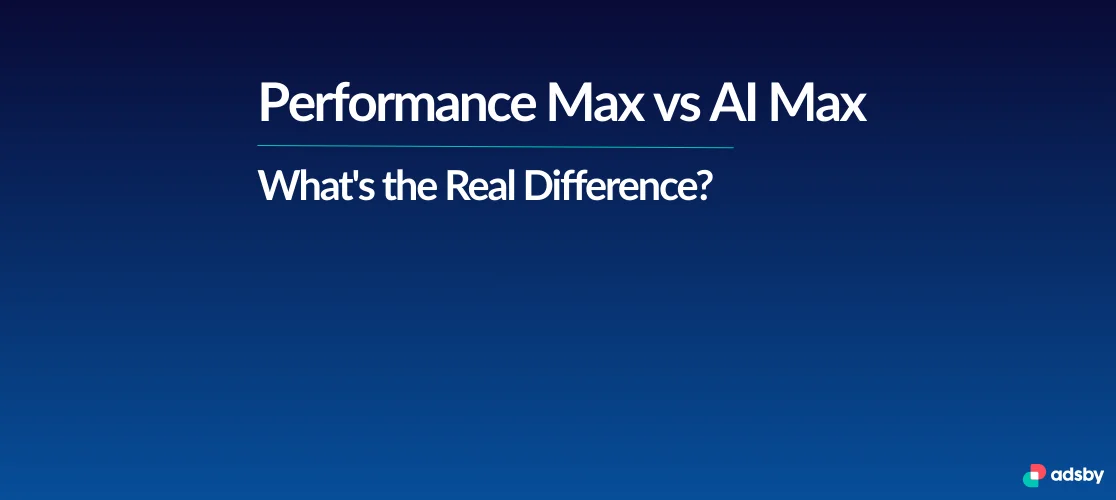
Look, I get it. You’re sitting there wondering which Google campaign type is going to save your advertising budget from becoming a black hole. Performance Max or AI Max? It’s like choosing between two AI assistants who both claim they’ll revolutionize your business.
Here’s the thing everyone’s dancing around: both of these campaign types are betting your money on Google’s AI making smart decisions. But they’re playing completely different games. Let me break this down for you without the marketing fluff.
What’s Really Going On With Performance Max?
Performance Max is Google’s “throw everything at the wall and see what sticks” approach to advertising. Launched back in 2021, it’s basically Google saying, “Hey, give us your money and trust us to spend it across YouTube, Gmail, Search, Shopping, Display – literally everywhere we can show ads.”
The numbers are pretty wild. Culligan dealers across the US and Canada managed to generate 732.46 leads through Performance Max campaigns, with conversions costing around $26.51 each. That’s real money generating real results.
But here’s what Google won’t tell you upfront: advertisers using Performance Max are seeing on average 18% more conversions at similar cost per action. Sounds great, right? The catch is you’re basically handing over the steering wheel and hoping Google’s AI doesn’t drive you into a ditch.
AI Max: The New Kid Trying to Fix Everything
Now AI Max for Search is Google’s attempt at giving you back some control while still leveraging their AI muscle. It became available for all advertisers by early Q3 2025, and honestly, it feels like Google heard all our complaints about Performance Max being a black box.
The performance claims are impressive: advertisers activating AI Max typically see 14% more conversions at similar CPA/ROAS, with campaigns using mostly exact and phrase keywords seeing up to 27% improvement.
But here’s where it gets interesting – Google just rolled out new reporting for AI Max campaigns showing “AI Max expanded matches” and “traditional matches” separately. Finally, some transparency!
So What’s Actually Different?
Performance Max: The Full-Throttle Approach
Think of Performance Max as hiring a really aggressive marketing manager who has access to every advertising channel but won’t tell you exactly what they’re doing. Online retailers saw an average 12% increase in conversion value when switching from Smart Shopping to Performance Max while maintaining the same ROAS.
The good stuff:
- Your ads show up everywhere Google can place them
- The AI learns from all that cross-channel data
- Less hands-on management required
- Some businesses report 60% growth in conversions and 59% growth in revenue.
The reality check:
- You lose granular control over where your ads appear
- Attribution gets murky when you’re everywhere at once
- Budget allocation across channels is entirely automated
- You’re trusting Google’s definition of “relevant”
AI Max: The AI Search-Focused Compromise
AI Max is like hiring a search specialist who uses AI tools but still explains their strategy to you. You’re still running Search campaigns, still using keywords, still writing ads – but now you can layer on Google’s latest AI tech to show up for relevant searches you’re not explicitly targeting.
The advantages:
- Stays focused on search results where intent is clearest
- Maintains campaign structure and keyword control
- Provides better reporting and transparency
- New AI Max ads feature longer headlines and pull content from blog posts, driving higher ROAS.
The limitations:
- Limited to search traffic only (no display, YouTube, etc.)
- Still requires active campaign management
- Newer technology with less historical performance data
- May miss opportunities on other Google properties
When Performance Max Makes Sense
Choose Performance Max if you’re thinking:
- “I need to be everywhere my customers are”
- “I have solid conversion tracking and enough budget for Google’s AI to learn”
- “I’m comfortable with automated decision-making”
- “My customer journey spans multiple touchpoints”
It’s particularly powerful for e-commerce businesses with diverse product catalogs. The cross-channel learning helps Google understand which products perform best on which platforms.
When AI Max Is Your Better Bet
Go with AI Max if you’re saying:
- “Search is my primary customer acquisition channel”
- “I want AI help but need to maintain control and visibility”
- “I’m transitioning from traditional search campaigns”
- “Brand safety and precise targeting are non-negotiable”
Service-based businesses often prefer AI Max because it maintains the transparency they need while adding AI muscle to their search strategy.
The Bottom Line
Stop overthinking this decision. Both campaign types are tools, not magic bullets. Performance Max gives you reach and automation at the cost of control. AI Max gives you AI-enhanced search performance while maintaining visibility into what’s working.
The real question isn’t which one is “better” – it’s which one aligns with your business model, risk tolerance, and need for campaign control. Start with the one that matches your primary customer acquisition strategy, then layer in the other as budget and experience allow.
Your advertising success depends more on understanding your customers and providing value than on which AI-powered campaign type you choose. Pick one, test it properly, and optimize based on actual performance data rather than theoretical benefits.
Quick Decision Framework
Choose Performance Max if:
- You want maximum reach across all Google properties
- You’re comfortable with automated decision-making
- You have strong conversion tracking and sufficient budget
- Your customer journey involves multiple touchpoints
Choose AI Max if:
- Search is your primary acquisition channel
- You need granular control and reporting transparency
- You’re transitioning from traditional search campaigns
- Brand safety and precise targeting are priorities
Choose both if:
- You have sufficient budget to test different approaches
- Your business benefits from both broad reach and targeted search
- You want to compare performance across different AI strategies
- You’re serious about maximizing your Google Ads potential
The key is starting with one, mastering it, then expanding your strategy based on what you learn about your specific business performance.